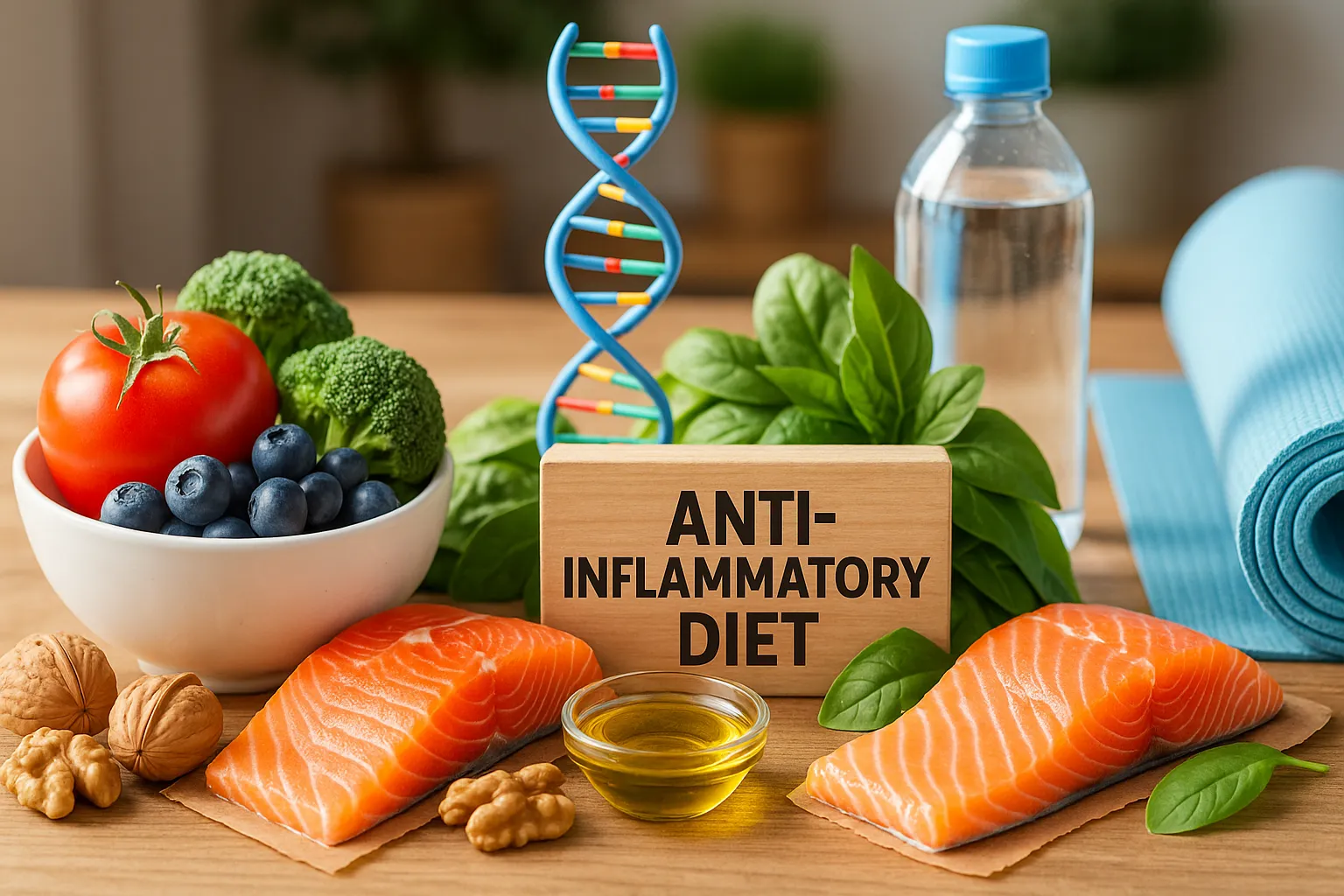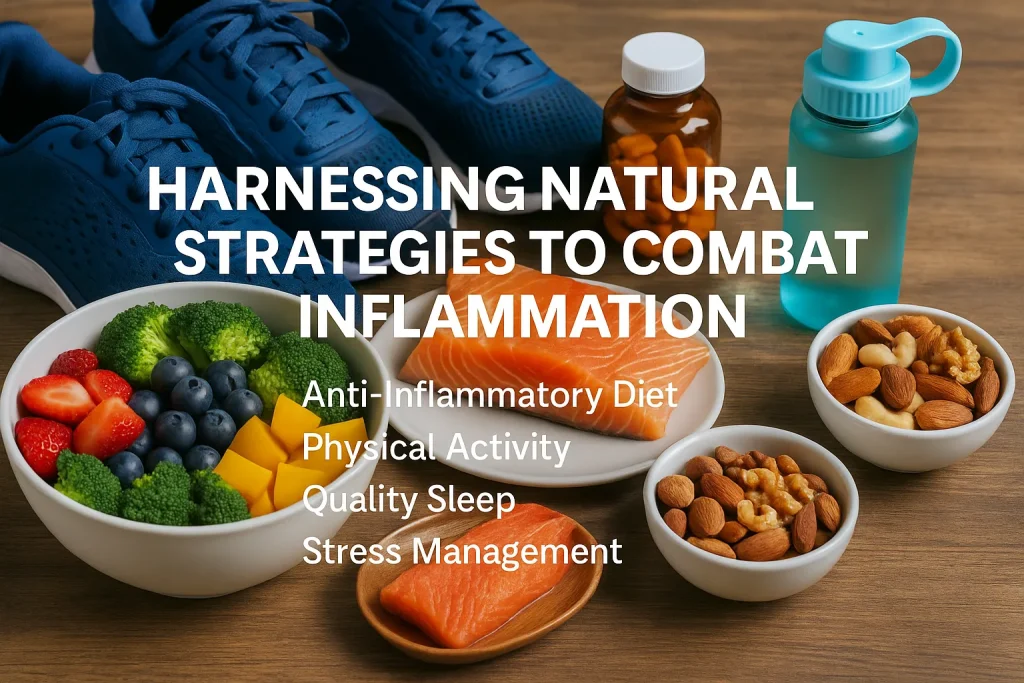
Inflammation is your body’s natural defense mechanism against injuries and infections, but when it becomes chronic, it can lead to serious health issues. At Elite Gene Labs, we can help you combat inflammation not just through conventional medicine, but also by incorporating natural, lifestyle-based strategies. This blog explores simple yet effective ways to reduce inflammation naturally, enhancing both your physical health and overall well-being.
Table of Contents
The Power of an Anti-Inflammatory Diet
A diet rich in anti-inflammatory foods plays a crucial role in mitigating chronic inflammation. Here’s how you can adjust your diet:
- Embrace a Rainbow of Fruits and Vegetables: These are packed with antioxidants that fight inflammation.
- Incorporate Omega-3 Fatty Acids: Found in fish like salmon and plant sources like flaxseeds, omega-3s are potent inflammation fighters.
- Choose Healthy Fats: Opt for sources like olive oil and nuts which have natural anti-inflammatory properties.
- Reduce Intake of Processed Foods: These often contain unhealthy fats and sugars that can exacerbate inflammation.
Enhancing Physical Activity
Regular exercise is not only good for your physical fitness but also helps reduce inflammation.
- Routine Moderate Exercise: Activities like brisk walking and swimming help lower inflammation markers.
- Strength Training: This helps manage body weight and reduces inflammatory markers.
- Flexibility and Balance Exercises: Practices like yoga reduce stress, which can lower levels of inflammation.
Prioritizing Sleep
Quality sleep is essential for reducing inflammation as it helps the body repair and rejuvenate.
- Regular Sleep Schedule: Consistency helps regulate your body’s natural rhythms, aiding inflammatory response.
- Optimize Your Sleep Environment: A cool, dark, and quiet bedroom promotes restful sleep.
Effective Stress Management
Chronic stress can increase inflammation, so managing stress is critical.
- Mindfulness and Relaxation: Techniques like meditation and deep breathing can significantly reduce stress.
- Regular Relaxation: Engaging in hobbies or spending time with loved ones helps lower stress levels.

Importance of Hydration
Staying hydrated is crucial for reducing inflammation by helping the body flush out toxins.
- Drink Adequate Water: Aim for at least 8 cups per day.
- Incorporate Water-Rich Foods: Foods like cucumbers and watermelon also contribute to hydration.
Leveraging Genetic Insights for Personalized Health Strategies
Understanding your genetic predispositions can help tailor these strategies more effectively. For instance, genetic testing through Elite Gene Labs can reveal specific needs or sensitivities that might impact how you manage inflammation. Knowing whether you have a genetic inclination towards increased inflammation can guide dietary choices, supplement use, and other lifestyle changes.
Conclusion
Adopting natural strategies to manage inflammation can significantly enhance your quality of life by preventing chronic diseases and improving your overall health. At Elite Gene Labs, we support your journey to better health by providing insights that not only cater to your current lifestyle but also to your genetic makeup.
Interested in optimizing your health with personalized insights? Visit Elite Gene Labs to discover how genetic testing can tailor your approach to combating inflammation effectively.
Frequently Asked Questions
What are the main causes of chronic inflammation?
Chronic inflammation can result from persistent infections, autoimmune conditions, prolonged stress, poor diet, lack of exercise, and environmental toxins.
What foods reduce inflammation fast?
Foods like fatty fish, leafy greens, berries, turmeric, ginger, and nuts are known to quickly reduce inflammation due to their high antioxidant and omega-3 content.
Can stress cause inflammation in the body?
Yes, chronic stress can trigger and worsen inflammation by increasing cortisol levels and disrupting immune system function.
How do you know if you have inflammation in your body?
Common signs include fatigue, joint pain, digestive issues, skin rashes, and brain fog. Blood tests can detect inflammation markers like CRP and ESR.
How does sleep affect inflammation?
Poor sleep increases inflammation by disrupting hormonal balance and impairing immune response. Consistent, quality sleep helps lower inflammatory markers.

